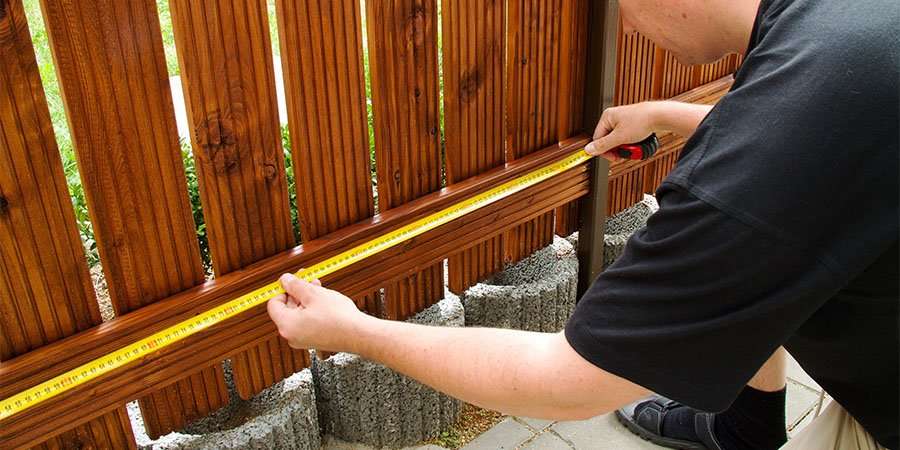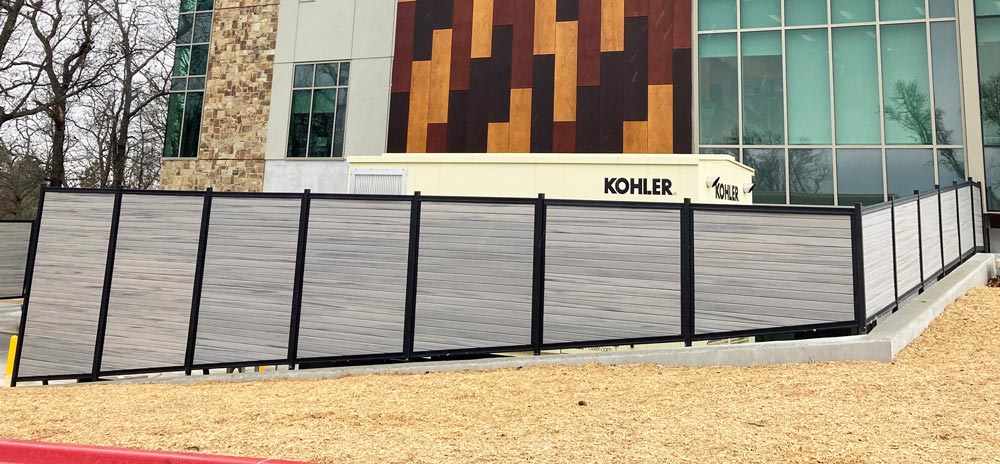All Categories
Featured
What Kinds of Fence Materials Are Readily Available for Residential and Commercial Projects?

When intending to install a fence, selecting the right product is critical for fulfilling the visual, functional, and financial requirements of your property. Whether for business or property usage, modern secure fencing choices supply a range of choices to match particular requirements. Here's a comprehensive check out the most typical fence products readily available today.
- Wood Fencing. Timber is a timeless choice for property owners looking for beauty and convenience. It functions well for privacy fencings, attractive styles, and limit marking.
Trick Advantages of Timber Fence:
Visual Flexibility: Can be crafted right into numerous styles, including board-on-board, lattice, and picket styles. Affordable: Offers cost for numerous tasks, specifically smaller sized residential ones. Adjustable: Quickly painted or stained to match a home's exterior. Disadvantages: Requires routine upkeep, such as discoloring and sealing, to secure versus weathering and parasites.
- Plastic Secure fencing. Plastic secure fencing has grown in appeal due to its streamlined appearance and very little upkeep needs. It's an excellent choice for both business and domestic areas.
Benefits:
Durable and Long-Lasting: Plastic withstands climate damages, insects, and fading. Easy Upkeep: A quick clean with soap and water keeps it looking pristine. Fashionable Alternatives: Comes in several colors and textures, some simulating natural timber. Considerations: The first expense is higher, but the long-term cost savings on upkeep can make it a smart investment.
- Chain-Link Fencing. Chain-link fencing is a practical remedy for protecting large areas, often used in business, commercial, and recreational residential properties.
Benefits:
Price: One of one of the most cost-effective fence alternatives. Resilience: Stands up to tear and use, even in challenging environments. Presence: Offers a clear line of sight while maintaining protection. Disadvantages: Minimal aesthetic charm and privacy unless integrated with slats or vegetation.
- Light weight aluminum Secure fencing. Aluminum supplies an innovative appearance without endangering on resilience. It's particularly preferred for ornamental or security purposes.
Trick Includes:
Rust-Free: Ideal for moist environments or swimming pool rooms. Reduced Maintenance: Needs very little maintenance compared to iron or wood. Sophisticated Look: Often made use of to simulate wrought iron without the hefty cost. Considerations: Not as strong as steel, making it less ideal for high-security requirements.
- Wrought Iron Secure Fencing. Recognized for its ageless sophistication and toughness, wrought iron is a favored for upscale residential properties.

Advantages:
Strength and Security: Difficult to damage or bend, making it excellent for high-security applications. Customizable Designs: Can be formed into complex patterns for a distinct appearance. Durability: With appropriate maintenance, wrought iron can last for years. Downsides: Needs normal maintenance to stop rust and is amongst the a lot more expensive fence options.
- Compound Fence. Compound fences incorporate timber fibers and plastic for a resilient, environmentally friendly choice.
Benefits:
Eco-friendly: Usually made from recycled products. Low Upkeep: Immune to rot, pests, and bending. All-natural Appearance: Imitates the appearance of wood without the upkeep. Downsides: Higher upfront price contrasted to standard wood fencing.
- Bamboo Fence. Bamboo is a sustainable and fashionable choice, especially for properties seeking a natural aesthetic.
Advantages:
Eco-Friendly: Bamboo is eco-friendly and biodegradable. Special Look: Adds a zen-inspired or exotic touch. Cost-efficient: Commonly much less expensive than hardwoods. Downsides: Less resilient in extreme environments or versus prolonged exposure to dampness.
- Steel Fencing. Steel fencing offers exceptional stamina, making it a best option for commercial and industrial demands.
Attributes:
Heavy-Duty Stamina: Deals with substantial influences and climate difficulties. Customizable Finishes: Powder finish enhances its look and durability. Protection: Suitable for areas calling for boosted protection. Factors to consider: Greater price and weight make it less ideal for small-scale projects.
- Masonry or Stone Fencing. For properties seeking a long-term and very sturdy option, stone or masonry fencing is a premium option.
Advantages:
Ultimate Resilience: Withstands extreme weather condition and lasts for years. Soundproofing: Blocks noise, making it ideal for city locations. High-end Aesthetic: Uses an upscale appearance that enhances high-end residential or commercial properties. Disadvantages: High installation expenses and minimal versatility in style adjustments.
How to Select the Right Product. When choosing a fence material, take into consideration the list below variables:
Objective: Do you require protection, privacy, or attractive charm? Spending plan: Some materials, like wood and chain-link, are affordable, while wrought iron and rock come with a costs. Upkeep: Materials like plastic and light weight aluminum are simpler to keep, while timber and functioned iron need normal care. Climate: Some materials, such as bamboo or untreated timber, are much less ideal for harsh weather. Final thought. Secure fencing products today use a vast range of alternatives to match various budget plans, functions, and designs. Whether you focus on toughness, appearances, or eco-friendliness, there's a material that will certainly fit your demands. By collaborating with a professional fencing service provider, you can explore these options comprehensive and guarantee a perfect setup for your domestic or business project.
Latest Posts
Check Out Outstanding Car Repair Care from Montclare Auto Repair – Keep Your Car Running Smoothly
Published May 24, 25
1 min read
Discover the Best Auto Repair Coupons in Montclare, Chicago
Published May 23, 25
1 min read
Discover WyHy FCU – The Key to Superior Financial Services in Wyoming
Published May 22, 25
1 min read
More
Latest Posts
Check Out Outstanding Car Repair Care from Montclare Auto Repair – Keep Your Car Running Smoothly
Published May 24, 25
1 min read
Discover the Best Auto Repair Coupons in Montclare, Chicago
Published May 23, 25
1 min read
Discover WyHy FCU – The Key to Superior Financial Services in Wyoming
Published May 22, 25
1 min read